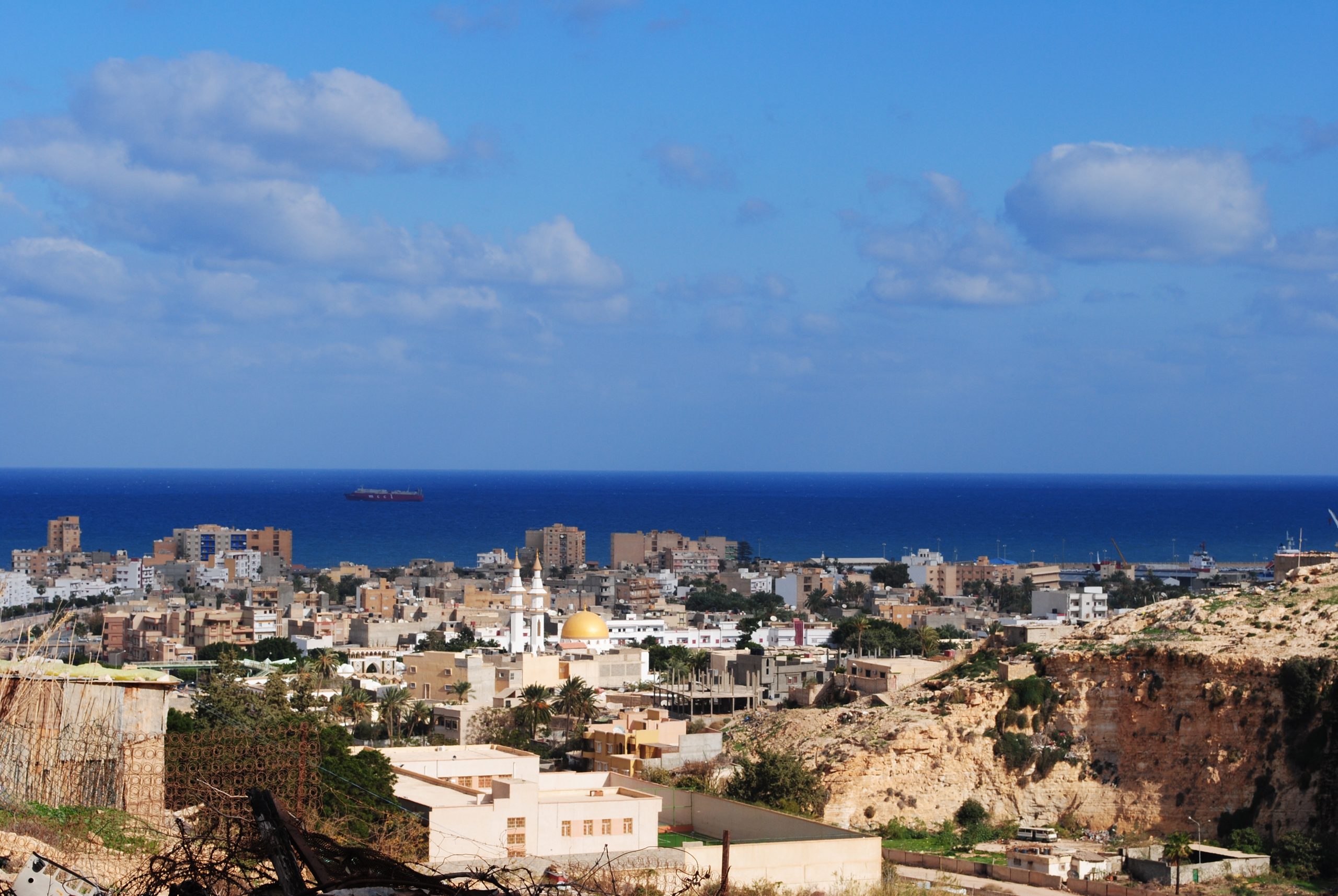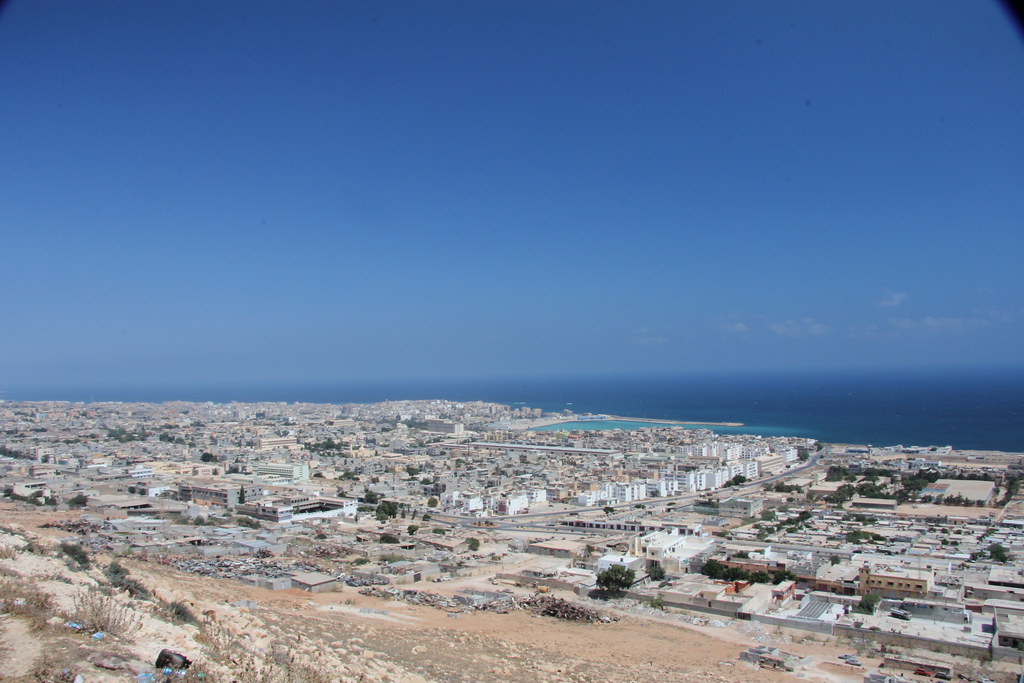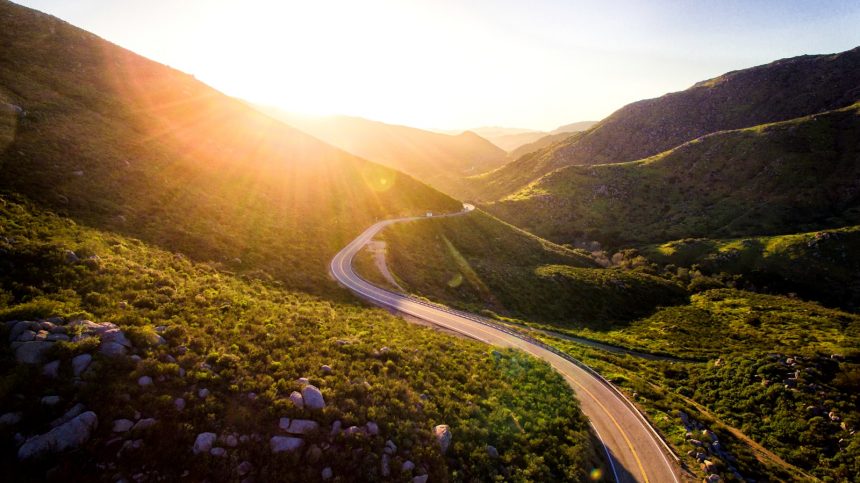Once a picturesque drive from Benghazi, the road to the Libyan city of Derna has become a haunting ordeal. Fields that once stretched to the horizon are now transformed into rust-red lakes, a cruel reflection of the region’s recent turmoil. As you approach Derna, traffic begins to slow, and the landscape tells a grim story. Telegraph poles, ripped from the ground by raging floodwaters, now lie haphazardly strewn about. Cars navigate treacherous terrain, dodging holes in the highway and following hastily carved detours created by diggers.
One of the closest bridges to Derna has been thoroughly washed away, leaving locals standing near the ragged tarmac precipice, peering over the edge and capturing the shocking scene with their cameras. The journey takes an ominous turn as soldiers not far from the bridge distribute face masks to every car’s occupants—driver and passengers alike. It is not long before you realize why everyone driving in the opposite direction is wearing them.
The smell of death lingers in parts of Derna, an olfactory experience that defies adequate description. It assaults your senses, a toxic blend of sewage and something more sinister that defies easy identification. At times, it’s so overpowering that it turns the strongest of stomachs, particularly when you stand on the port’s edge, where recovery teams report that bodies continue to wash ashore.
The devastation extends beyond human lives; buildings, possessions, and livelihoods have been mercilessly swept away in this eastern Libyan city. The morning routine of recovery teams often begins with the grim task of extracting bodies carried in on the tide, entrapped within mounds of debris slowly decomposing in the saltwater. Broken wood, entire cars perched precariously on scattered sea defenses, tires, fridges, and various other waste blend and swirl in the stagnant water, painting a grim tableau of the disaster.
The graphic and shocking pictures and videos emerging from Derna provide a glimpse of the catastrophe but witnessing the aftermath firsthand drives home the scale of the destruction. The once-narrow river now resembles an open wound, sometimes spanning a hundred meters or more. Upon these mud mounds, nothing remains—only a desolate wasteland devoid of life.
The destructive force of the floodwaters defies comprehension. Cars lie scattered like discarded toys; some casually tipped onto their sides while others rest upside-down. One vehicle appears to have been pushed entirely inside the terrace surrounding the distinctive Al Sahaba Mosque, while another is lodged within the side of a building. Concrete block walls have toppled, sturdy trees have been uprooted, and everything else has vanished. This isn’t merely a case of thousands of people displaced; it’s a loss of homes, possessions, and entire lives. Humanity has been cruelly erased from this part of Derna.

For the survivors, life will never be the same. Grief hangs heavily in the air, mingling with palpable anger. Faris Ghassar, who tragically lost five family members in the deluge, expresses his frustration, questioning why they were told to stay in their homes. He shares pictures of his loved ones, first alive and then wrapped carefully in blankets, their faces bearing the signs of their harrowing ordeal.

Amidst the ruins, a convoy of ministers tours the disaster zone, representing the eastern government, one of Libya’s two opposing authorities. The country’s prolonged internal conflict has decimated its infrastructure, contributing to the tragedy. Faris believes that this political rift was fatal to his family’s fate.
When asked how such a calamity could occur despite the supposed safety provided by the dams, Eastern Prime Minister Osama Hamad offers a grim explanation. “It was a powerful cyclone,” he states. “Too strong for the dams. This is nature, and this is Allah.”
In the city’s streets, whispers of a complete evacuation swirl, leaving those who remain to battle the elements. Clean water and medical care are in short supply, and nearly a week after the catastrophic storm, the challenges confronting Derna’s survivors continue to mount.


